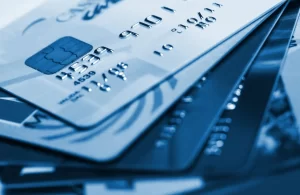
Many of us are unsure about the function of our credit bureau. These bureaus collect and store data on our accounts, providing it to a consumer reporting agency or credit reference agency. This information is then used to make decisions on how to use our credit. We should only deal with bureaus that have a good reputation, however. There are several ways to contact a bureau and get more information on your credit report. Listed below are the most common ways to contact a bureau.
A credit bureau gathers information on your credit accounts and payment history and sells it to different businesses for use in making decisions. While it is possible for businesses to check your file without your consent, there are laws against this practice. These laws require businesses to have a legitimate reason to check your credit report before they can do business with you. However, many consumers are unsure about who can and cannot access this information. As a result, it is important to understand your rights and obligations.
When you borrow money, a credit bureau will often check your credit history. They collect information from lenders, including credit card issuers, banks, and others. The information they receive is used by lenders to determine whether a person is likely to pay off a loan. If you have filed for bankruptcy, this information may be included in your credit report. Additionally, credit bureaus may share information with other credit bureaus. These are just some of the reasons to check your credit report regularly.
While the existence of credit bureaus is relatively recent, they have been around for decades in some countries. For example, in Germany, Sweden, and the United States, credit bureaus have been around for almost a century. Most high-income countries only began to create credit bureaus in the 1990s. While the name varies, they all share a common function: providing the public with reliable information on their credit. A credit bureau can also be used as reputational collateral, which can be useful for small businesses and new borrowers. During the recent financial crisis, having positive credit information is key to keeping access to institutional credit.
The personal identifying information included in a credit report includes name, Social Security number, and date of birth. Lenders also report certain information about you to different agencies. Generally, most creditors furnish their information to all three bureaus, although third-party collection agencies are often the exception. Credit reports also include payment history, account number, and original balance, historical highest balance, past-due balance, and date of opening. Other types of information may include collections, which are unpaid debts sold to third-party debt collectors. Inquiries include any credit inquiries in the past two years.
The three major consumer credit bureaus are Equifax, Experian, and TransUnion. These agencies report information about your accounts voluntarily. However, not all creditors report to all three bureaus, which can make the difference in your credit score. While they do use the same information to calculate your credit score, their reports might not be completely accurate. This is a critical detail to understand. So, take note of the information contained in your credit reports and make sure they reflect your true financial situation.







